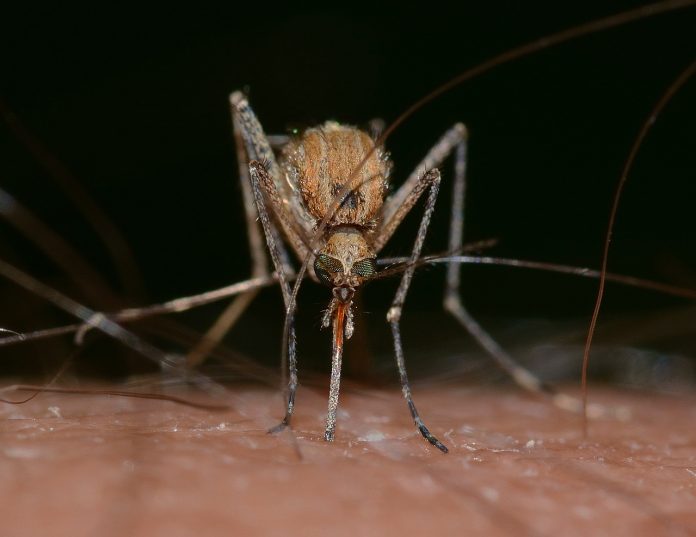By Jeff Rugg
Many areas have continued to experience heavy rains recently, and a number of places are still flooded from previous storms.
This will lead to the next natural phenomenon: mosquitoes. Of course, mosquitoes occur every summer, but there are some things you can do about them.
There are about 200 species of mosquitoes in North America. The biggest problem is not that they are annoying, but they can transmit many deadly, viral diseases and parasites to people, pets and livestock.
Great strides have been made to reduce some diseases, such as malaria. Other ones, like the West Nile virus, have moved from Africa to the United States.
Mosquitoes also transmit several varieties of encephalitis and the nematode that causes heartworms in dogs.
Standing water
Container-breeding mosquitoes lay their eggs in stagnant water. Anything that will hold water for more than a week can produce mosquitoes.
Eggs are laid on or near the water surface and hatch within a few days. A couple hundred of them together look like a quarter-inch speck of dust floating on the water.
The adults hatch from a pupa stage that lasts one to four days, and they live for a week or two. The male mosquito drinks nectar from flowers and does not bother people.
The female must drink some blood before she can produce any eggs. Some species prefer mammals while some prefer birds, but they will take what comes their way.
Most species prefer feeding in low light levels, such as at night, during the late evening or early morning, or in the shade.
Prevention
Controlling mosquitoes needs to begin with making sure they do not hatch.
Potential mosquito nurseries can include old tires, buckets, a swimming pool, rain gutters, a flat roof, leaking faucets, a fountain, puddles, animal water bowls or any other thing left outside that collects water.
The easy way to fix the problem is to drain every one of these locations at least weekly. Any puddle that lasts for more than four days could produce mosquitoes.
In locations that cannot be drained, the best way to kill mosquitoes is at the larval stage.
A safe, non-toxic way to control mosquitoes is to use a product containing a biological larvicide called Bti (Bacillus thuringiensis subspecies israelensis).
There are several brands that use Bti, and some of them have a slow-release method of dispersal.
Mosquito Dunks by Summit Chemical Co. have been around the longest, and I have found these work very well.
They look like small, compressed, sawdust doughnuts that float on water and kill mosquito larvae before they become flying, biting, disease-spreading adults.
The bacteria are ingested by the larvae as they feed, and the larvae then get sick and die.
The bacteria do not affect fish, mammals, birds or bees. Some other varieties of Bti do affect caterpillars, moths and butterflies.
Treating at the larval stage is the most effective way to control mosquitoes. Adult insecticide sprays may look good to the onlooker but are not as effective at controlling mosquitoes.
(Email questions to Jeff Rugg at info@greenerview.com. To find out more about Jeff Rugg and read features by other Creators Syndicate writers and cartoonists, visit the Creators Syndicate website at www.creators.com.)











